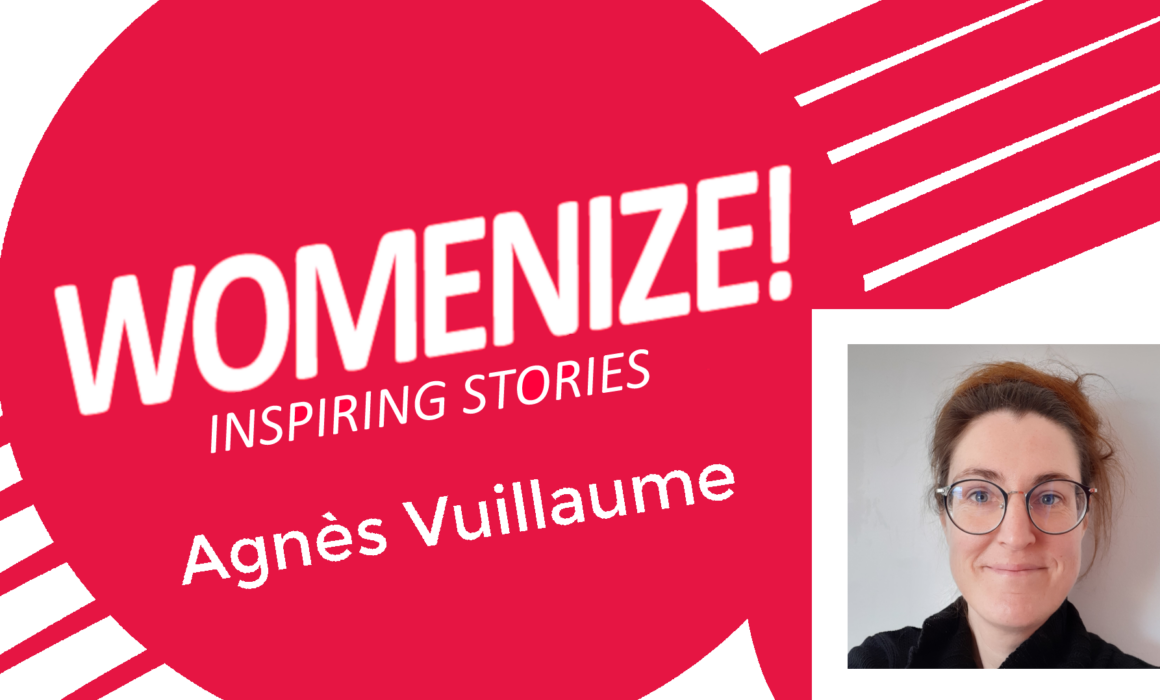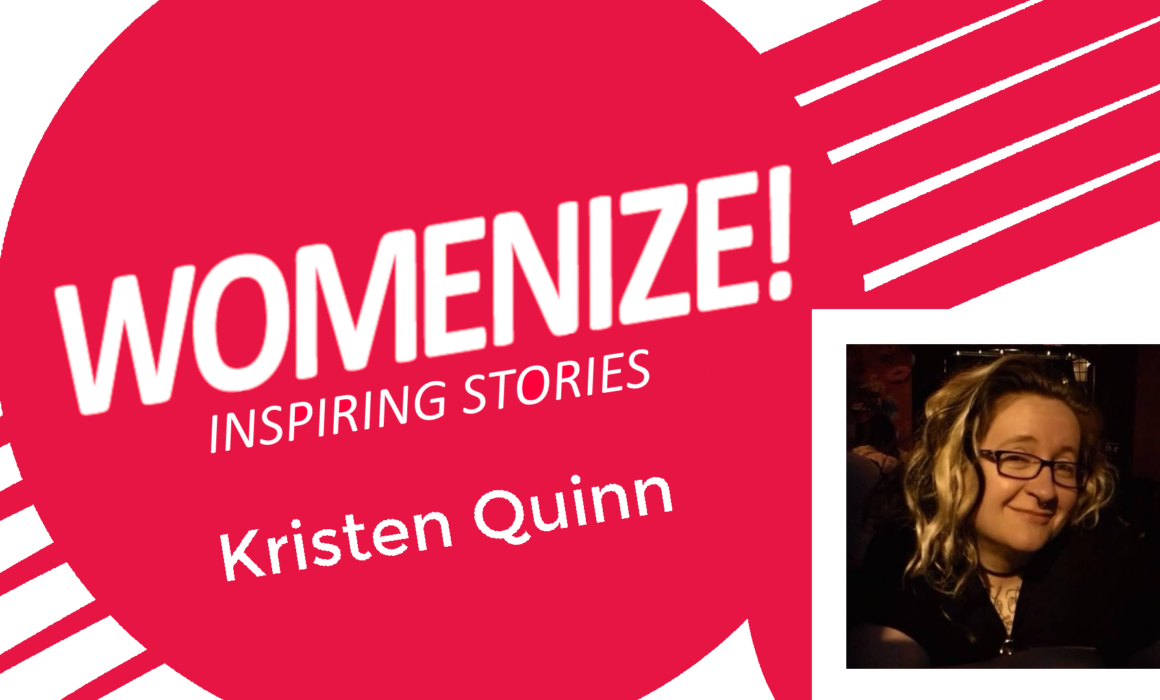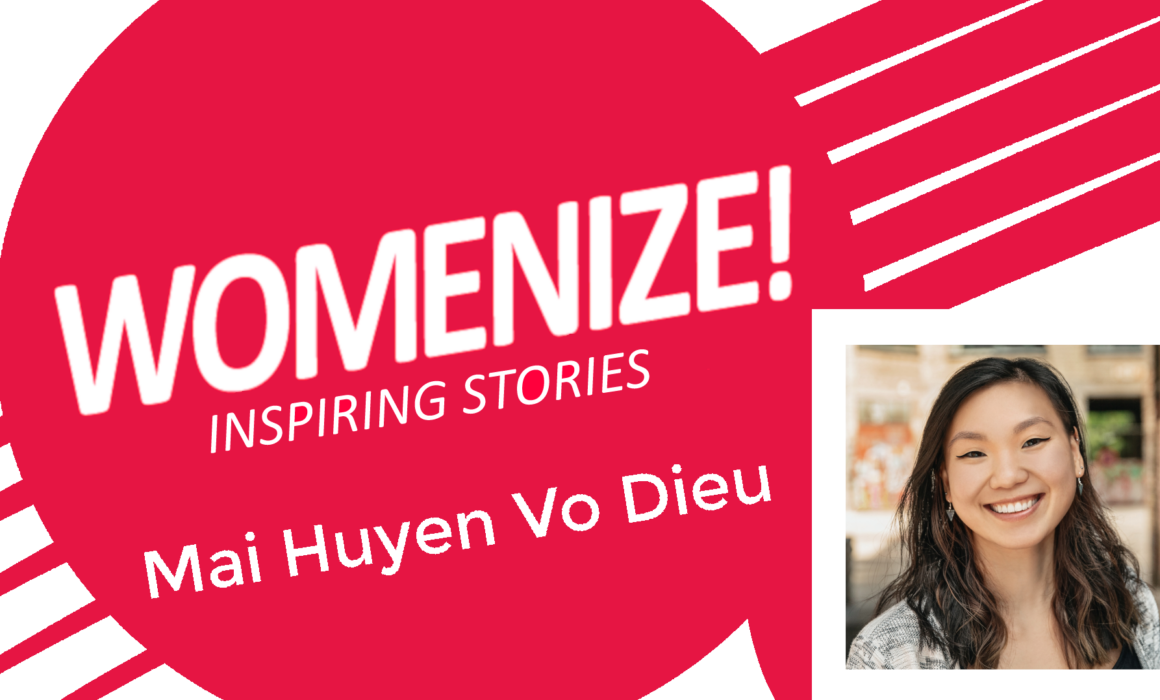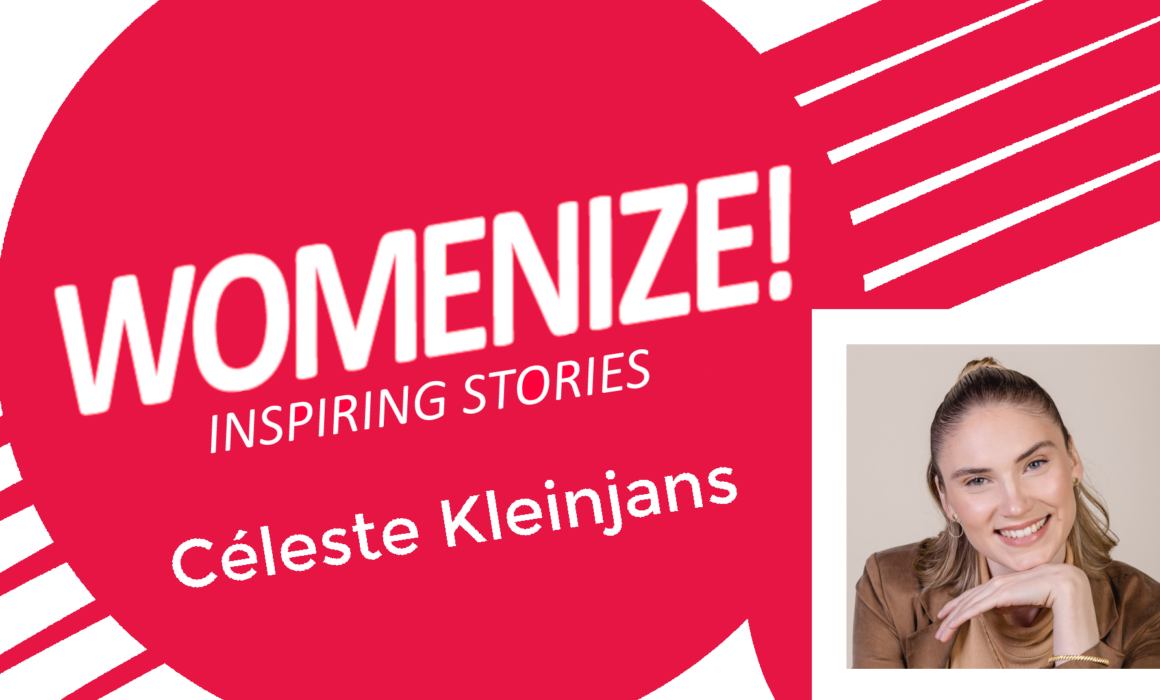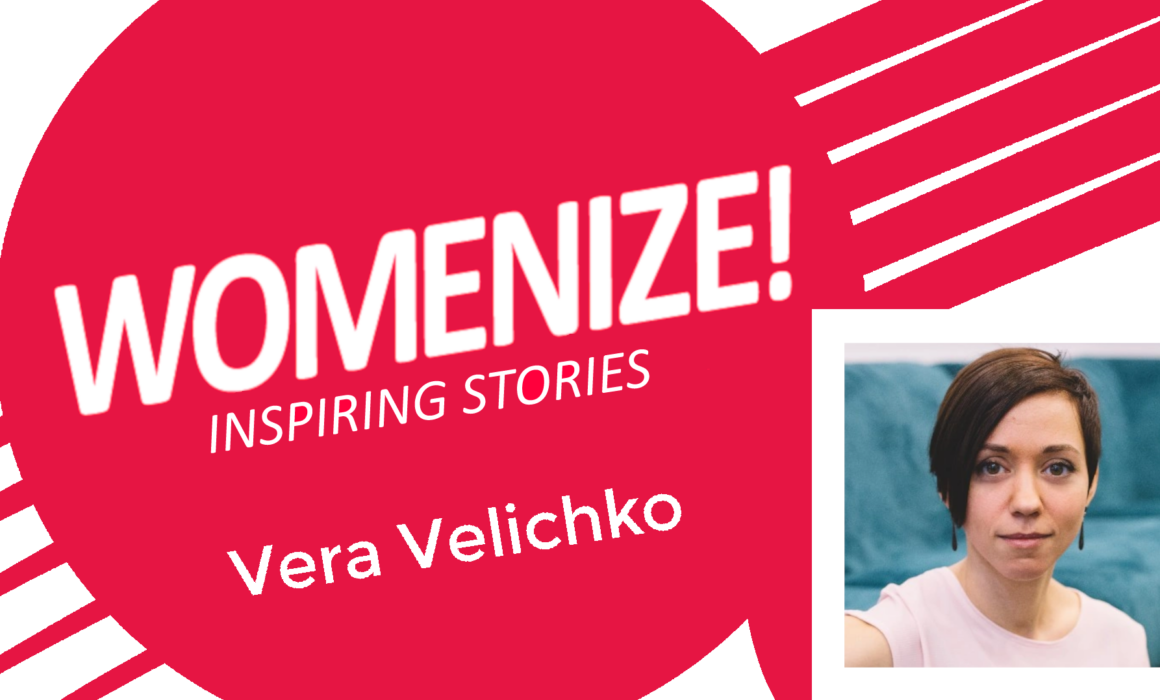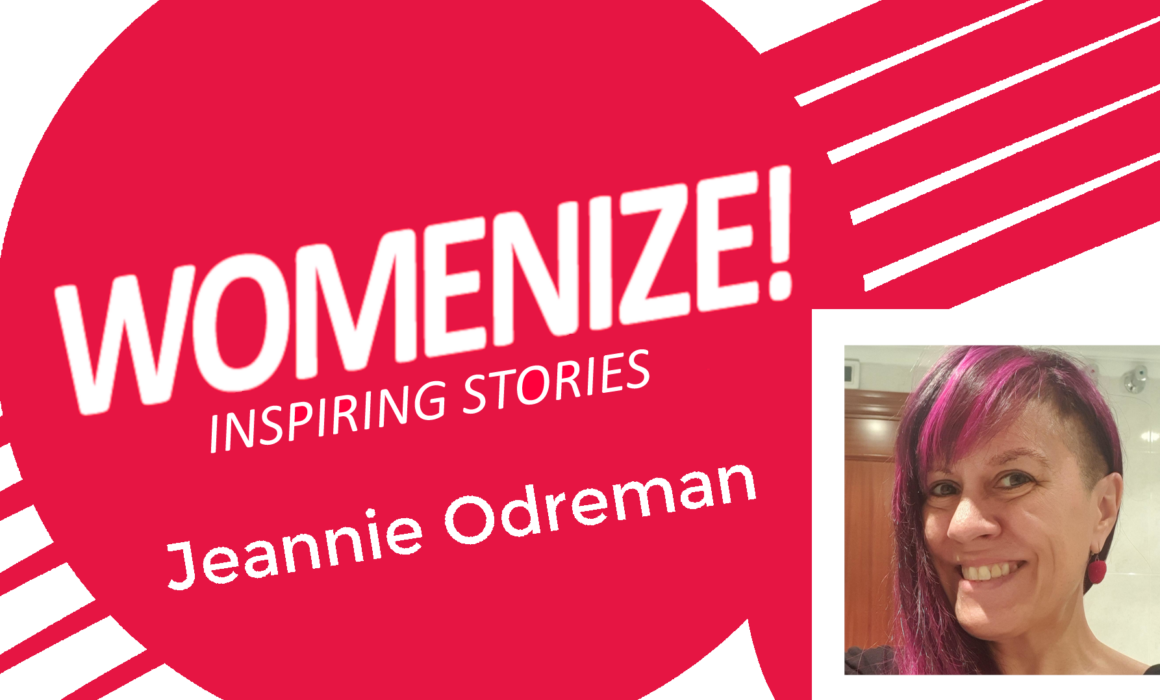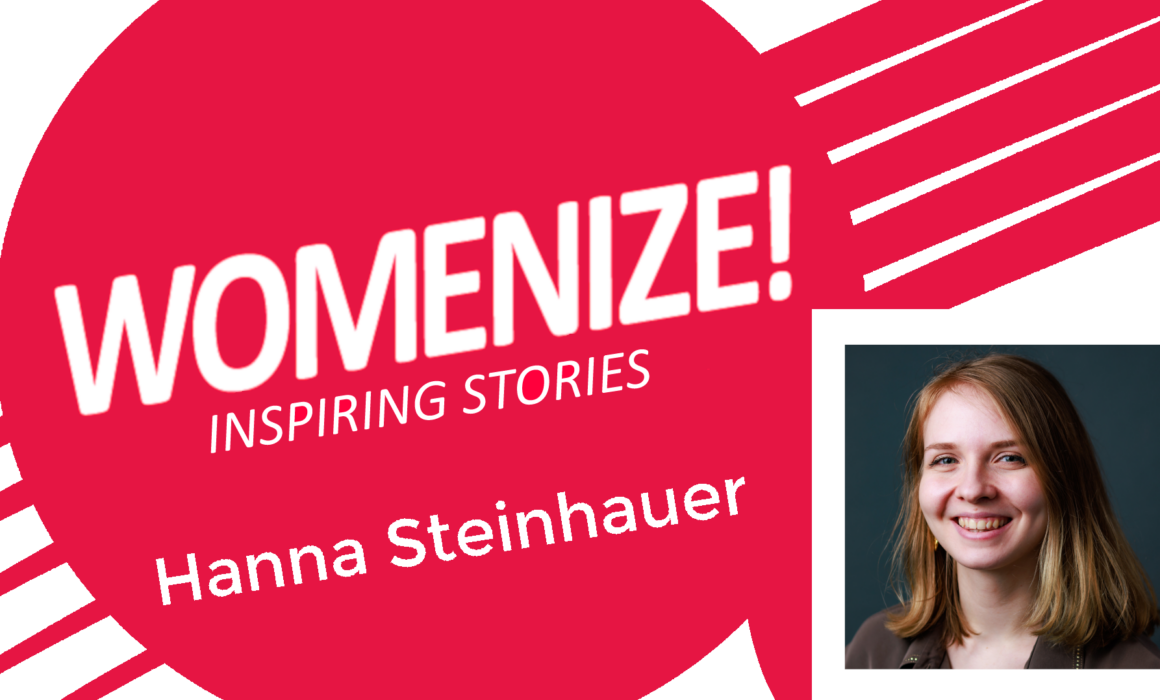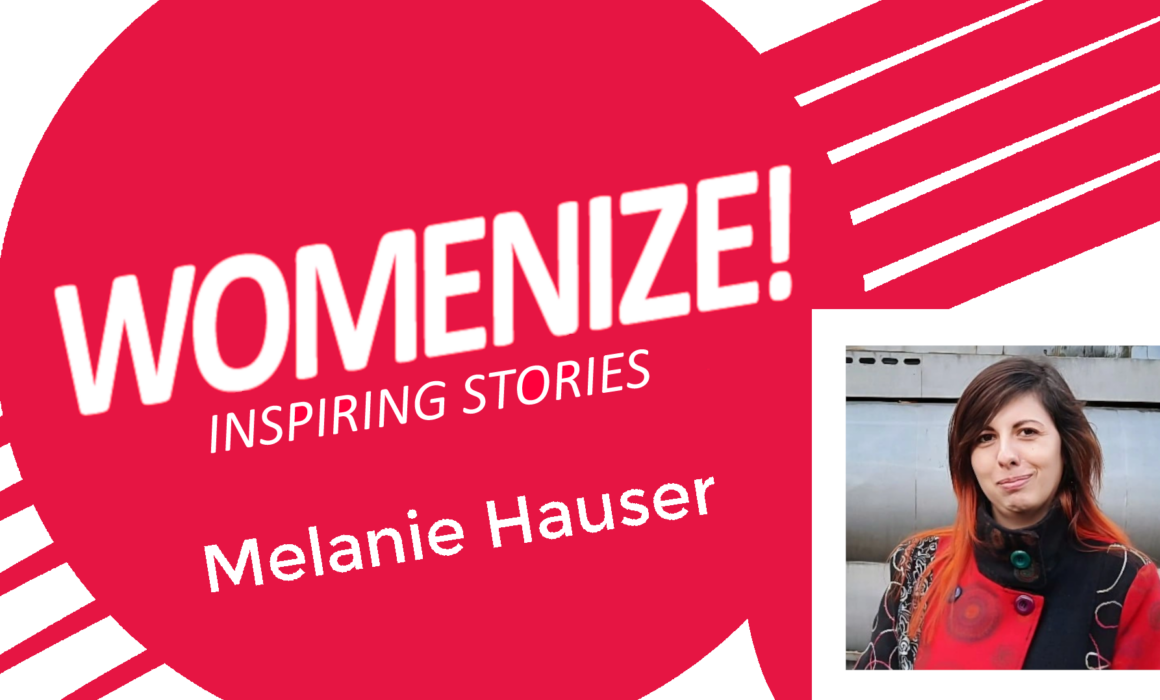Agnès Vuillaume – Womenize! – Inspiring Stories
Womenize! – Inspiring Stories is our weekly series featuring inspirational individuals from games and tech. For this edition we talked to Agnès Vuillaume, Company Director & Solo Developer of 2054. She speaks about moving from IT to starting her own game studio, merging creativity with technical skills, and navigating the challenges of game development as solo creator. Read more about Agnès here:
Hi Agnès! You’ve transitioned from working in IT for other companies to becoming a solo game developer with your own studio “2054”. What inspired you to take that leap, and how has your career evolved since starting your own studio?
In the various positions I’ve held, I’ve always been looking for meaning in my work. I’ve also always wanted to express my creativity through images.
When I started out as an IT developer, I wanted to work in fields that were meaningful to me, such as healthcare, and I always set aside time to practice drawing and painting, until I took a degree in Fine Arts at the same time as I was working as an IT developer, 10 years after I started in the profession.
Just before setting up my own video game studio, I tried my hand at painting for 2 years. But the job didn’t suit me. That’s when I asked myself what profession could combine my technical skills in IT with my drawing skills, while allowing me to be autonomous in my work.
And that’s when the idea of starting a video game studio just occurred me. I embarked on the adventure 6 years ago, and I have no regrets whatsoever, because I’ve learned so much and I feel I’m in the right place, even if I have to adapt, because selling a video game isn’t the easiest task.
Today, thanks to this decision, and after having created a company and produced a game, I feel able to do what I like and what I decide, without having to conform to external standards or expectations, and without considering myself less talented than others, which is a big step forward in the way I perceive myself, and therefore in my career. It opens a lot of doors for me, because I don’t censor myself as much as I used to.
As the creator, designer, and programmer of The Sundew, how does your artistic background influence your approach to storytelling and world-building in a dystopian, cyberpunk setting? What message or experience do you hope players take away from the game?
I think my atypical background allows me to tell stories that are a little outside the established imaginary. Of course, I take my inspiration from a lot of pre-existing imaginary worlds, and I follow certain standards of dystopia and cyberpunk, drawing inspiration from the great references of the genre. Because I like them and they make sense to me. But I bring to it all the experiences I’ve had, particularly in my life abroad, where I’ve had the opportunity to meet artists with different aspirations (in England and Belgium) and to mix with cultures different from my own (even if I’m aware that I’ve remained within a European culture).
Otherwise, technically speaking, I incorporate a lot of my past as a painter into the way I construct my images. I let all those parts that don’t belong to the world of video games speak for themselves as much as possible, in order to open up other horizons, while still trying to fit into an existing “mythology”.
What I want players to take away from the game is what I’m trying to do for myself: open myself up to things other than my established patterns. Science fiction, I think, is a way of escaping from an everyday life full of norms, duties and clichés. I try to get away from all that, and I suggest that players try to see things differently too. It’s difficult for everyone, but I think it’s important.
Managing the technical, creative, and business sides of game development as a solo developer is no small feat. What are the biggest challenges you’ve faced in this role, and how have they shaped your vision for the future of 2054?
The biggest difficulty for me is managing the commercial side, the communication and the sales of the game. To produce a video game, you need money, if only to feed yourself. Finding financing is one thing, but I’m not sure that managing to finance a game without being able to sell it afterwards is a good thing. For The Sundew, I followed this process: focusing on financing and producing the game.
You have to start somewhere, and when you’re working alone a lot, unfortunately you can’t master everything at once. But I don’t want to produce a game to please myself. I want the players to like it, otherwise it doesn’t make sense to me.
I haven’t excluded this approach from my process, but I’m beginning to wonder what other options there are for financing a game, such as participatory financing, which might include constant communication about the project, something I’ve still got a lot to learn about, and which really isn’t my area of expertise. It’s still a challenge for me today.
Otherwise, the studio’s original aim was to produce pixel-art dystopian games. Today, its aim is to produce video games, and until its structure is consolidated, I no longer restrict myself to a particular type of video game.
Thanks for this interview, Agnès!
Agnès’s links: LinkedIn
Womenize! – Inspiring Stories Feature by Madeleine Egger

